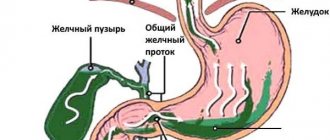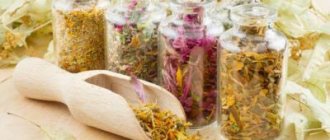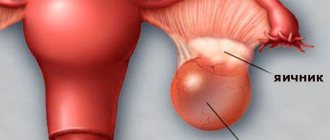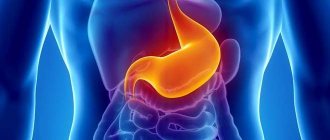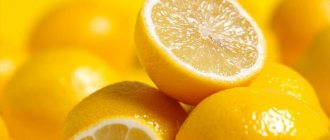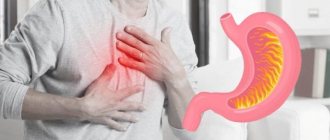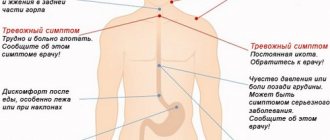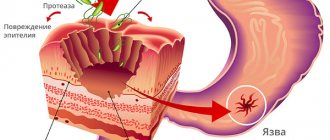Functions of mucus in the stomach
Since our birth, special cells have been producing mucus in the stomach.
The reason is that the substance is needed in this organ. Mucus, or mucin, is produced into bicarbonate. The resulting mucus-bicarbonate barrier protects the stomach tissue itself. This is the main function of the mucous membrane. Mucus protects our body not only from gastric juice, but also from what we eat. Poor nutrition, diets, as well as overeating are all harmful. In addition, the gastric tract is not designed for rough food and cigarette smoke. All these shocks gradually destroy the protective shell, and the body is forced to develop protective mechanisms.
Diagnostic methods
The main diagnostic method is fibrogastroduodenoscopy, an endoscopic technique based on the insertion of a flexible probe through the esophagus. The instrument is equipped with a flashlight, a video camera and a device for collecting biomaterial. During the procedure, the doctor visually assesses the condition of the mucous membranes, the color, volume and consistency of the mucus present inside the digestive system. Ultrasound is not used as a method for diagnosing the condition of protective barriers, since it is impossible to obtain the necessary diagnostic information with its help.
How is it formed?
The stomach is a secretory organ that contains several types of glandular cells. They produce various substances, including mucin, an insoluble type of mucus. Why is it needed and what to do if it is produced too much, read this article.
Why does the stomach need mucus?
Along with mucin, pepsin and hydrochloric acid are secreted in the stomach. These are aggressive enzymes that are involved in the digestion of food. In addition to food, they are capable of destroying the organ’s own cells, which leads to diseases. However, for most people this does not happen because the inside of the stomach is covered with insoluble mucus.
Mucin prevents the effects of enzymes on the organ's own cells and damage from other irritants (alcohol, drugs, spicy foods). Chemically, mucus is a mixture of amino acids and carbohydrates, making it insoluble in water.
The amount of mucin is regulated naturally. Its production increases when unfavorable factors (internal or external) appear that damage the walls of the stomach. At the same time, there is a decrease in the production of hydrochloric acid.
With a constant excess of mucus, digestion is disrupted - fermentation occurs, gas formation and belching occur. The reasons that stimulate such conditions include:
- Drinking alcohol.
- Errors in nutrition and overeating.
- Taking foods or medications that increase the production of gastric juice.
- Stress, nervous tension.
Most often, excess mucus forms in the stomach due to poor nutrition, when a person eats dry food, often eats fast food, spicy and fatty foods. At the same time, ignoring the first symptoms that indicate problems in the digestive system. The factor that causes excess mucus production is the abuse of alcoholic beverages, beer, and soda. Smoking cigarettes irritates the gastric mucosa, which interferes with its normal digestion of food.
Causes of Excessive Mucin Production
The production of mucin in a certain amount occurs constantly, this process is natural and is not considered a deviation. Doctors associate an excess of this substance with poor diet and certain human habits.
Mucin is produced daily to maintain the walls of the organ. If the stomach tissues are damaged, mucus production increases significantly; this is a protective reaction.
To select the optimal treatment method, during diagnosis, the specialist pays special attention to collecting anamnesis and finds out everything about the patient’s bad habits.
The main reasons for increased work of the glands:
- a person's passion for alcoholic beverages;
- excessive smoking;
- working with toxic chemicals and gases;
- long-term use of potent medications;
- consumption of low-quality products;
- consumption of hard and coarse foods, pickles, spicy dishes and smoked meats.
After identifying the general clinical picture, such a patient is most likely diagnosed with gastritis or pancreatitis. With any of these ailments, digestion is disrupted, the walls of the organ are affected, and mucus begins to be produced in larger volumes.
Since a large amount of mucin indicates the beginning of the atrophic process and the death of some glands, the disease cannot be left to chance; the consequences of such ignoring can be very sad.
Causes of pathology
How often do we think about why our stomach gurgles? Despite the fact that the rumbling process is natural, it is still necessary to know when it can indicate possible violations.
Sometimes gurgling occurs after eating, sometimes the body itself tells a person that it’s time to have a snack, and sometimes gurgling is accompanied by an uncomfortable sensation and pain - this is what you should pay attention to. Today we will look at the reasons why gurgling sounds appear in humans.
What makes your stomach gurgle?
Often, gurgling has no serious basis for manifestation and only indicates the active work of the digestive system. However, there are reasons that lead to a “noisy” process. Below we consider those that are relatively safe for humans:
- Prolonged hunger - a feature of the human body is that during a long hunger strike, it itself will let you know that it is time to eat with the help of this particular sound. If a person ignores these clues, the gurgling will only increase. In addition, you should not drink coffee, alcohol or carbonated drinks on an empty stomach, especially if it begins to make characteristic sounds.
- Disturbed sleep patterns - very often the stomach gurgles when a person sleeps little and poorly.
- Food intolerance - you need to listen to your body, since gurgling and rumbling after eating a particular product may indicate that it should be excluded from your diet.
- Passive lifestyle - any doctor will say that only an active lifestyle can contribute to the good functioning of all human vital systems. At the same time, increasing metabolism and stimulating the digestive process is a merit of activity.
- Stress and nervousness - our psycho-emotional state is directly related to the gastrointestinal tract. Frequent stress often leads to feelings of “butterflies in the stomach.” This is due to the fact that stress increases the secretion of stomach acid.
- Junk foods and soda – poor nutrition most often causes gurgling and rumbling in the stomach. An impaired diet, together with frequent consumption of fast foods and soda, leads to disturbances in the functioning of the gastrointestinal tract and causes not only rumbling, but also pain.
- Causes of sounds in the stomach
Eating foods quickly - very often the stomach boils and gurgles in pregnant women. This is due to the changes that occur during the process of bearing a child - the smooth intestinal muscles relax, and disordered eating only worsens the gurgling.
If your stomach gurgles due to the reasons described above, then eliminating this phenomenon will be very simple - just adjust your diet and quality of nutrition, sleep and activity. In addition, there are several rules by which you should eat food:
- Breaks between snacks should be as equal as possible.
- You need to eat at least 5-6 times a day.
- You should not swallow food in large pieces - in addition to making it much more difficult for the stomach to digest the resulting products, its activity is slowed down by a large amount of air.
- You need to chew food thoroughly - this allows you to begin the process of breaking down food in the oral cavity.
- Do not drink heavy drinks on an empty stomach.
Gastroesophageal reflux disease
Unfortunately, the rumbling and gurgling of the stomach is not always associated with short-term disturbances. There are reasons that are diagnosed as serious pathologies and diseases of the gastrointestinal tract.
Therefore, if your stomach gurgles for a long time or with characteristic variability, and at the same time you feel pain and discomfort in the stomach, then you should consult a doctor.
Serious reasons why your stomach gurgles:
- Gastroesophageal reflux disease - during its action, the lower part of the esophagus is affected. Excess gastric juice enters the esophagus and begins to irritate the mucous membrane. In this case, a person may feel not only gurgling, but also pain in the chest area and abdomen. The advanced condition often requires surgical intervention.
- If there is gurgling in the stomach of a newborn, then this is a clear sign of the presence of dysbacteriosis. Disturbed microflora in the intestines negatively affects the baby’s condition, and he notices stool abnormalities.
- Lactose deficiency - due to the lack of necessary enzymes in the child’s body, he is not able to digest milk. This disorder is manifested by gurgling and pain. In this case, the baby should be given lactose-free formulas and cereals.
What to do if there is gurgling in the stomach
There are several ways to combat excess gases in the stomach that cause gurgling in the stomach. In principle, they are all directly related to food, since a violation of nutrition and consumption of large amounts of harmful foods leads to inflammatory processes and digestive disorders.
It is important for a person to drink the proper amount of water. Any doctor, nutritionist and fitness trainer will tell you that for good functioning of the gastrointestinal tract you need to drink at least two liters of water per day - this helps normalize the body’s condition and improve digestion.
- If you often gurgle, then you should give up fatty foods, eating on the go, chips and fast foods. Agree, eating fruit in this case will be a more useful process.
- Try to eat more often and reduce portions due to this - this action helps reduce the amount of gas in the intestines. At the same time, in the coming days you will notice that there will be much less gurgling.
- Since childhood, we have all been familiar with the expression “when I eat, I am deaf and dumb” - this is due to the fact that during conversations while eating, we swallow air, which moves through the intestines and causes gurgling.
- In order to get rid of sounds in the stomach and intestines, you can use decoctions of mint, cumin or chamomile. They, having a calming effect, allow you to quickly remove excess gases from the body.
- Cigarettes and alcohol paired can cause great damage to the gastrointestinal tract. Since alcohol is harmful to the delicate gastric mucosa, and nicotine reduces the production of this protective mucus, a person who abuses these products may develop peptic ulcers. In addition, the stomach will gurgle and pain may appear.
- Sleep as a cure for abdominal noise Cell regeneration and a relaxing effect for the whole body is sleep. Therefore, to get rid of gurgling, rumbling and other symptoms of the disorder, you should sleep at least 7 hours a day. A 9-hour sleep would be ideal.
- Movement is life. A person who exercises and gives preference to a healthy lifestyle gets sick much less and is exposed to external negative factors. Scientists have proven that active sports allow you to protect yourself from problems such as obesity, diabetes, heart and stomach diseases.
- Hygiene comes first - a large number of bacteria dangerous to the stomach enter our body from unwashed products that have undergone insufficient heat treatment, from unwashed hands. To protect yourself, you must not only adhere to personal hygiene, but also when purchasing food, meat and fish, ensure that they are fully cooked
Benefits of ginger root for stomach gurgling
Among all the rules, there are also useful recipes that relate to traditional medicine. For example, if your stomach is gurgling, you can try carom seeds. In this case, the seeds are mixed with rock salt (half a teaspoon).
Ginger root will also help in the fight against unpleasant sounds, gurgling and rumbling - just take about 10 grams of crushed root and consume it. For taste, you can add palm sugar, which is considered quite healthy for the stomach.
Despite the effectiveness of home remedies for rumbling and gurgling in the stomach, you need to consult a doctor if taking such decoctions and infusions becomes very frequent in your life. Perhaps the provocateur of the gurgling is a more serious disorder and ordinary folk medicine cannot cope with it.
Interesting! Against the background of inflammatory diseases, if you eat a lot of foods fried in oil, as well as simply foods that form mucus, it will be actively released and accumulate in the intestines. Smoking and excessive coffee consumption also contribute to its accumulation in the gastrointestinal tract.
- Joints crack.
- The nose is constantly stuffy, not due to some illness, but on its own.
- Bad breath that is not associated with dental problems.
- Swollen eyes.
- Chronic cough for no apparent reason.
- Allergies (allergy sufferers are advised to periodically cleanse the body of mucus on a regular basis).
Mucus, or mucin, as doctors call it, is formed as a result of the work of special cells of the digestive organs and has a gel-like texture.
With an excess of mucin, the acidity of the stomach decreases, which impairs its main function - digesting food. This leads to stagnation of products, fermentation processes, inflammation of the mucous membrane and activation of infection.
Suppression of hydrochloric acid by mucin reduces the antibacterial and enzymatic properties of the organ, which leads to even more serious disorders, which include:
- Gastritis, duodenitis.
- Stomach ulcer and then duodenal ulcer.
- Dysbacteriosis and lack of nutrients.
- Hepatobiliary pathologies, in which bile is secreted and enters the stomach.
The latter condition is no less dangerous than an ulcer and should not occur normally. However, due to some diseases, the sphincter tone decreases, and foamy mucus and bile are found in the patient’s stomach. Taken together, this disrupts the entire process of digesting food and obtaining the body’s necessary nutrients.
The appearance of foam or excessive mucus in the stomach indicates a protective reaction of the body. The root cause is:
- Irritating factor (spicy food, stress).
- Concomitant disease (duodenitis, gastritis, cholecystitis).
Reasons: adults, pregnant women, children
The appearance of belching is inevitably associated with eating food, especially in large quantities. The absorption of fast food and air-containing products (milkshakes, souffles) leads to the accumulation of air in the stomach. Active smokers also often suffer from belching due to active swallowing of air.
The main factors for the appearance of belching:
- Binge eating;
- Presence of pathogenic microorganisms (poisoning);
- Incorrect combination of products;
- Gastrointestinal diseases.
In pregnant women, belching is considered normal, resulting from hormonal changes and a slow digestion process. Carrying a fetus - mainly in the second half of pregnancy - leads to compression of the esophagus and the appearance of undesirable processes.
In children, belching of air occurs due to the rapid process of absorption of food. Capturing air, the baby swallows it along with food, which after a while comes out in the form of belching.
Among the gastrointestinal diseases that provoke belching are:
- Gastric stenosis,
- Kink in the stomach
- Gastritis,
- Inflammation of the esophagus.
Dysbacteriosis, leading to frequent disorders, equally provokes active gas production.
Gastroesophageal reflux is accompanied by the backflow of food into the esophagus from the stomach, which provokes increased formation of gases.
Problems with the liver and gall bladder disrupt the functioning of the intestines, and therefore are concomitant diseases to the manifestation of unhealthy gas formation in the stomach. Nervous diseases, primarily nervous aerophagia, are characterized by the weakening of many body systems, including disruption of the stomach.
Consequences
Any pathology in physiology has its consequences. If the volume of mucus increases, then:
- Acidity is noticeably reduced. Food in the stomach is poorly digested and begins to rot and ferment.
- Because food simply rots and passes undigested into the intestines, many nutrients are not absorbed.
- The body quickly depletes, a person loses weight for no reason.
- Bacteria develop in the stomach cavity and peptic ulcers begin to form, which cause pain.
It should be noted that the more mucus on the walls of the stomach, the less acidity, therefore, the worse food is digested.
Medical causes of belching
Since belching, flatulence and diarrhea (diarrhea) are natural reactions to abdominal discomfort, there should be other symptoms for various diseases that will allow the doctor to make the correct diagnosis.
Reasons that can lead to burping include:
- gastroesophageal reflux disease (GERD): a condition that causes stomach or duodenal contents to flow into the esophagus.
- Paresis (also called delayed gastric emptying): a condition in which the muscles in the stomach wall are weakened. This results in delayed digestion, and the abdominal muscles are needed to push food through the digestive tract.
- Belching with gastritis occurs due to inflammation of the gastric mucosa. Gastritis is often accompanied by belching of hydrogen sulfide. Due to atrophy of the gastric mucosa, decreased acidity of gastric juice and decreased motor function of the stomach walls, gases belched after eating acquire the smell of rotten eggs. Due to gastritis, belching with a large amount of saliva is painful even after sleep (it is called “hungry belching”).
- Peptic ulcers on the esophagus, stomach and upper small intestine.
- Inability to properly digest lactose. This ingredient is found in dairy products. This condition is often accompanied by diarrhea.
- The body's inability to properly digest fructose and sorbitol. This condition, like lactose intolerance, is often accompanied by diarrhea.
- The bacteria Helicobacter pylori causes stomach infections, which can make belching worse. These same bacteria can cause gastritis, peptic ulcers and GERD.
- In persons with diseases of the nervous system (hysteria, neurasthenia), so-called nervous belching or pneumatosis of the stomach sometimes occurs. Its causes are the accumulation of a large amount of air in the stomach with the subsequent formation of a gas bubble.
- With thoracic or cervical osteochondrosis, belching and nausea occur while eating. Also, with osteochondrosis, due to muscle spasm, a feeling of a lump in the throat often appears, regardless of food intake.
Less common causes of belching:
- celiac disease: intolerance to gluten, an ingredient in many flour products;
- dumping syndrome: a disorder in which incompletely digested food passes from the stomach to the intestines;
- The pancreas is unable to produce enough enzymes needed for digestion.
Barrett's disease
To get rid of this disease, its treatment must be approached comprehensively, using folk remedies and drug therapy, which the doctor will prescribe to the patient after diagnostic measures. Only through an integrated approach and adherence to the rules of a healthy diet can the disease be eliminated forever.
With the help of medications
In order to effectively cure the disease, it is important to identify the root cause of why excessive mucus discharge occurs, since the root cause of this lies in the disease occurring in the body.
The most common cause is gastritis, gastric ulcer, pancreatitis, cholecystitis. When a patient has superficial gastritis, the mucus becomes white. To determine this, it is necessary to do an endoscopy of the stomach. Thanks to this, it will be possible to determine the localization of the lesion. If a person has a superficial form of gastritis, then he is bothered by the feeling of heartburn every time after eating, and nausea.
If the patient has an atrophic form of gastritis, then in this case the epithelium of the organ is severely damaged by deep ulcers, as a result of which the person feels an acute feeling of pain, he has no appetite, attacks of vomiting and stomach cramps occur. If atrophic gastritis is not treated, it will provoke even greater mucus production, and gastric ulcers may also develop. Drug therapy consists of taking:
- antibiotics;
- antacid drugs;
- medications that relieve pain symptoms.
To restore damaged mucous membranes and establish the process of producing hydrochloric acid, antacid drugs such as Almagel, Phosphalugel, and Maalox are prescribed. However, it is worth remembering that if you have diseases of the internal organs, it is strictly forbidden to take any medications on your own. The regimen for taking them and the duration of therapy must be agreed upon with the attending physician.
Antibacterial therapy is carried out if tests have shown the presence in the patient’s body of a pathogenic microbial bacillus Helicobacter pylori, which corrodes the walls of the stomach and provokes the formation of ulcers and wounds. At the same time, the gastroenterologist determines the most effective and appropriate antibiotic, agrees on the dosage regimen and duration of therapy.
It makes no sense to use only traditional methods, especially if excess mucus is a symptom of a disease. It is necessary to eliminate the cause of the appearance of mucin. But sometimes you can use traditional medicine, after consulting with your doctor.
Salt solution
The removal of mucus with a salt solution helps. This is a good way to remove excess mucus from the stomach, especially if the phlegm collects in a lump. It is better to carry out this cleansing procedure in the morning if you have not eaten anything for a long time. Take 1 liter of water and dissolve 1 tbsp in it. salt, with a slide. Drink this salt water within 5-10 minutes.
Healing herbs
Treatment with folk remedies also includes the use of various herbs. But before preparing decoctions, read all the contraindications, make sure that this or that herb will not harm you.
You can drink tea made from St. John's wort and chamomile flowers; it also helps clear the stomach of mucus. These herbs should be taken in equal proportions (1 tablespoon of the mixture) and poured with hot water (250 ml), left to infuse (20 minutes). It is recommended to drink this tea on an empty stomach. In summer, it is useful to eat fresh dandelion leaves by adding them to vegetable salads.
Ginger root is also considered healing. Buy a small root and grate it, pour 1 liter of boiling water over the resulting pulp, leave to steep (1 hour). You need to drink this infusion throughout the day. To improve the taste, you can add a little honey to the drink. You can be treated with ginger for a week or a little longer.
Other means
How else to remove excess mucus? You can buy high-quality mineral water and drink it every day. Another simple way to cure this pathology is to drink cabbage juice. The first time, drink only 50 ml of fresh juice, then more, maximum 100 ml. Other freshly squeezed juices, such as citrus juices, are also beneficial.
After consulting with your doctor, you can prepare another folk remedy for mucus using horseradish and lemon juice. Buy 150 g of horseradish and 3 medium-sized lemons. Grate the horseradish and squeeze the juice out of the lemons. This medicine is taken morning and evening, 1 teaspoon.
Excessive mucus production, like any malfunction of the body, can seriously harm human health. It is important to consult a doctor as soon as the first symptoms appear. These signs may also indicate a serious gastrointestinal disease, so you need to undergo examination and begin a course of treatment as soon as possible.
You can restore balance in mucus production only if you consult a doctor. First of all, it is necessary to determine the cause, because... Ordinary suppression of symptoms cannot completely cure. In addition, a lot of mucus in the stomach is not a separate disease, but only a symptom of another disease.
If a person has superficial gastritis, then it is the mucus layer that will be affected. It becomes abundant, foamy and sometimes turns white. An endoscopic examination will be required to make a diagnosis. It will help identify the affected area, because the disease can develop in patches or affect the entire layer.
With superficial gastritis, the patient feels discomfort in the epigastrium, heartburn and nausea appear, especially after eating. To eliminate pain, Bellasthesin is used. This is a local analgesic whose action begins immediately in the stomach. The drug contains novocaine derivatives.
If gastritis has an atrophic form, then the mucous membrane becomes so thin that hydrochloric acid and enzymes damage the walls of the organ. The patient constantly feels severe pain, nausea and suffers from vomiting attacks. Because of this, appetite worsens. A severe complication of this pathology is gastric ulcer.
Treatment can be carried out with both drugs and traditional medicine.
The doctor prescribes the following medications:
- antacids;
- antibiotics;
- agents with analgesic properties.
Antacids are taken during exacerbation of the disease. Then the doctor cancels them. Maalox is very effective. This medicine helps restore mucous membranes. As a result, the disease gradually decreases in intensity of symptoms. Thanks to this drug, the patient can eat normally, without constant nausea and vomiting.
But you need to keep in mind that Maalox cannot be combined with other drugs, because it contains a large dose of aluminum. If a person has gastritis with a low level of acidity, then this drug should not be taken. In this case, on the contrary, it is necessary to take medications that will improve digestion. For example, Festal and Gastal are suitable.
Antibiotics are necessary when the causative agent of gastritis was the microorganism Helicobacter pylori. Several decades ago, it was identified and proven that gastritis is also transmitted through contact, and is not just a consequence of an unhealthy lifestyle. But antibiotics should not be taken inconsistently. The doctor prescribes 2-4 types of antibiotics of different groups for gastritis. It is not recommended to take them for a long time.
Antacids - fight against high acidity, neutralize the negative effects of gastric juice on the mucous membrane. They also relieve heartburn and reduce pain. They act quickly, improvement occurs within a few minutes after administration. Disadvantage: short-term effect.
Preparations:
- absorbable antacids - Rennie, baking soda, calcium carbonate, Bourget's mixture;
- non-absorbable antacids - Almagel, Maalox, Gastal, Alumag, Gestid;
- combined agent – aluminum phosphate, magnesium oxide, algedrat.
Antisecretory agents - inhibit the production of hydrochloric acid, reduce and inhibit gastric secretion.
Common medications that can help remove mucus:
- proton pump inhibitors – Rabiet, Gastrozol, Zulbex;
- H2-histamine blockers - Zantac, Gistac, gastrosidin, quamatel, nolpaza;
- selective blocker of M1-cholinergic receptors of the stomach - gastrocepin;
- antiulcer drugs - dalargin.
To remove mucus and get rid of putrefactive processes in stomach ulcers, antibacterial agents are prescribed:
- Omeprazole and its analogues - omez, omefez, zolser, losek.
- Amoxicillin and its derivatives - amosin, amoxiclav, ecobol.
- Clarithromycin and analogues - claricide, clarexide, clacid, binoclar.
Antispasmodic drugs are prescribed to relieve pain:
- no-shpa;
- drotaverine;
- papaverine;
- verapamil;
- Dibazol.
Barrett's disease developing as a result of atrophic gastritis indicates a precancerous condition. And gastritis with low acidity is often provoked by excess mucus. To prevent such serious diseases, you need to go to the doctor at the first sign: pain in the epigastric region or sudden constipation, belching with a sour or bitter taste.
The main thing in therapy is to detect in time that there is a lot of mucus in the stomach. Causes and treatment - all these questions should be discussed with your doctor. To treat such a pathology, drugs are needed that are an analogue of stomach acid - hydrochloric acids, which destroy mucus naturally, as a result of which it will be removed from the body.
If there are other concomitant stomach diseases (ulcers, for example), the gastroenterologist will additionally prescribe suitable medications. If your acidity is low, it is better to drink herbal infusions, and if your acidity is high, take Omeprazole or other medications in this group. All treatment is selected individually, and only during an appointment with a doctor. A pharmacy employee does not have the right to recommend medications at his own discretion.
Treatment
Anyone who is foaming at the mouth or who sees someone should seek emergency medical attention.
Treatment may vary depending on the cause of foaming at the mouth, but emergency medical attention is usually required to prevent serious and permanent complications.
Below we look at treatment options for the most common causes of foaming at the mouth:
Drug overdose
A person suffering from a drug overdose should be hospitalized as soon as possible and should undergo constant medical monitoring to prevent serious health risks such as organ failure, coma, and death.
It often takes only 1-3 hours from the time of injection or drug overdose to death.
Signs of overdose include:
- loss of consciousness
- dilated pupils
- increase or decrease in body temperature
- fast or slow impulse
- shallow and slow breathing
- pale or washed out skin
- seizures
- paranoia and psychosis.
- sticky skin
If someone is taking or may be taking an overdose, a bystander should call 911 or take them to the nearest hospital.
While waiting for help, the person should turn the person onto their side and ensure their airway is clear. No one who overdoses should be left alone.
Individuals who have overdosed on food toxins such as alcohol or liquid chemicals may undergo a gastric pump or receive activated charcoal to remove the toxin.
If the overdose was caused by an opioid, the person may receive an injection of an antidote known as Narcan, which immediately reverses the effects of the drug.
There is currently no known antidote to treat overdoses caused by stimulant drugs.
After an overdose, most people, depending on the severity or cause of the overdose, will need to stay in the hospital for at least one day or more.
seizures
If someone is having a seizure, a bystander should make sure they are a safe distance away from anything that could cause them harm.
If the person is near a wall, others can use blankets or towels to create padding between the person and the wall.
Remove all furniture around them, such as chairs, coffee tables or electrical appliances. Never try to put anything in the mouth of someone who is having a seizure.
Stay with the patient who is having a seizure until it is over. Once the convulsions stop and someone begins to regain consciousness, they can be rolled onto their side. It is very important to make sure their mouth and nose are clean.
Cover the patient with a blanket or jacket and allow him to rest, checking every few minutes to ensure he is awake and breathing normally.
People with epilepsy do not need to seek emergency medical help every time they have a seizure. After a seizure, the most important thing many people need is rest and hydration. A seizure is stressful and debilitating for the entire body.
Anyone experiencing a seizure without any known cause, a severe seizure, or a seizure other than usual should seek emergency medical attention.
People should also seek emergency help if the seizure lasts more than 5 minutes, or if they are not fully conscious with a normal breathing rate 10 minutes after the seizure ends.
Doctors will monitor a patient who is having a seizure to make sure that basic body functions, such as heart rate and breathing, are normal. They may also give them medications.
If this is someone's first seizure or if it is different from usual, doctors will do tests to determine the cause.
Some people with seizure disorders and types of epilepsy require lifelong medication called anticonvulsants or anticonvulsants.
rabbis
Anyone who thinks they may have been exposed to the rabies virus should seek immediate medical attention.
Recommendations for people who may have been exposed to the rabies virus include:
- Gently wash the exposed area or wound with soap under a running faucet for at least 15 minutes, and then continue to rinse the area with water.
- Go to your hospital, local clinic, or doctor for vaccinations as soon as possible. These vaccines can prevent you from getting the virus.
Once rabies infection has formed, there is no cure for the disease. People who think they may have been exposed to the rabies virus or infected animals should seek immunization immediately and early to avoid life-threatening complications.
How to get rid of it at home?
If the doctor has given permission, then you can fight the disease at home with folk remedies. At the same time, you should not stop drug therapy, strictly follow the doctor’s advice, observing the rules for taking prescribed medications, a therapeutic diet and other recommendations that are aimed at quickly getting rid of excess mucus production.
Gastric lavage
If the secreted mucus bothers a person, it is advised to do daily morning gastric lavages with a special saline solution, which is easy to prepare. To do this, you will need 1 liter of boiled chilled water, add 1 tablespoon of salt to the frost. Mix everything thoroughly and drink on an empty stomach, and then induce vomiting.
This remedy will help remove a lot of excess mucus from the walls of the stomach. In the first days, the water will have a cloudy appearance, which means that a lot of mucus has accumulated in the stomach. However, after 4-5 days the liquid will lighten and this will be evidence that this method is working. However, it is worth keeping in mind that if a person has high blood pressure, heart and kidney problems, this method is contraindicated.
Infusions are folk remedies that are used as therapy for increased mucus formation in the stomach. This drink softens the mucus accumulated on the walls of the stomach and promotes its rapid removal from the body.
An infusion of chamomile flowers with St. John's wort has a beneficial property. To prepare it, you need to take dry inflorescences of both types of herbs, combine them in equal proportions and pour hot boiled water. Let it brew for 20 minutes, then take the infusion each time on an empty stomach. If the patient has a low level of hydrochloric acid production, it is recommended to take a glass of warm water with red and black pepper diluted in it. However, this drink should be consumed with caution, as it can cause a worsening of the condition.
Fresh juices
If the accumulation of mucus occurs due to the fact that a person has low acidity, freshly squeezed juices, which must be taken before eating, will help cope with this problem. Suitable juices using citrus fruits, apple juice. To make freshly squeezed citrus juice, you will need 2 large oranges and 1 lemon.
Why does the stomach need mucus?
Mechanism of occurrence
Belching foam usually occurs a few minutes after eating. Symptoms become more frequent if a horizontal position is taken immediately after eating.
Unlike burping air, the release of foam or large amounts of white saliva is accompanied by discomfort.
The unpleasant condition is characterized by:
- feeling of a lump in the throat when swallowing saliva;
- heartburn - a burning sensation behind the sternum (lasts for an hour after eating);
- acute pain during or after a meal;
- diarrhea (stool becomes thin and occurs more than 3 times a day);
- dyspeptic disorders in the form of nausea and vomiting, which provides temporary relief.
A person suffering from the formation of foam in the digestive tract and its eruption into the oral cavity constantly wants to cough up. The patient feels itching and soreness in the throat.
The symptoms of the pathology intensify when eating peppered, smoked, and spicy foods. Chocolate and mint have a relaxing effect on the sphincter of the stomach, so after such foods, regurgitation in a lump of saliva intensifies.
Symptoms worsen at night due to the horizontal position in which the contents of the stomach easily enter the esophagus.
Mucus on an empty stomach
If a clear excess of mucin is visible during gastroscopy in the morning, after a prescribed long-term abstinence from food, it means that there are already some disorders in the body. It is advisable to check other organs - the pancreas, gallbladder and duodenum. Inflammation of these organs also increases mucin production.
What explains the appearance of mucus in the stomach on an empty stomach? The reasons for this may lie in the habit of smoking on an empty stomach. Smoking severely damages the mucous membranes of both the esophagus and stomach. The body somehow tries to cope with this and produces more mucins than necessary.
Nutrition with excess mucin
Nutrition for mucus in the stomach
Drug treatment may not be carried out if the patient himself is to blame for the increased production of mucus because he is not eating properly. To do this, it is enough to switch to foods that are easily digestible and at the same time remove phlegm. This is porridge:
- Buckwheat.
- Rice.
- Wheat.
- Pearl barley.
Cereals should not be overcooked or seasoned with animal fats. The porridge should be crumbly, with a small amount of olive or corn oil. It is preferable to cook soups with vegetables or with secondary meat broth. Reduce the amount of potatoes. Add more broccoli, carrots, spices, and onions. Legumes should be excluded from the diet. Steam lean meat, preferably cutlets and meatballs. Prohibited products include:
- Ice cream.
- Baking.
- Kissel.
- Jelly.
- Potato.
- Fat meat.
- Milk.
- Coffee.
- Alcohol.
- Marinades.
A diet that reduces mucin production is determined individually by the doctor for each patient. The cause of the pathology matters. Depending on the acidity level, the gastroenterologist may recommend kefir, mineral water, fruits and vegetable salads. When following a diet, the mucous membrane is not irritated and the stomach glands return to producing normal levels of mucus.
Prevention
If the body secretes a large amount of mucus, then it is necessary to adhere to certain rules in diet and daily routine.
In order for the mucus covering the stomach to be produced in a normal volume and not cause pathological conditions, you need to adhere to proper nutrition, since the causes of this disease lie precisely in the consumption of poor-quality food, which is why the mucous membranes are irritated and excessive secretion of this substance occurs.
If mucus abundantly covers the walls of the stomach, you need to consult a doctor who will determine the cause of the condition and prescribe drug therapy with drugs that will help eliminate the main symptoms in a short time. You should not self-medicate, since eliminating fluid that accumulates abundantly requires the use of special medications. It turns out that prevention is based on basic rules, following which you can eliminate the disease and not experience discomfort.
Preventive measures
To prevent such problems, you should definitely eat rationally. Every person must remember that food should be a source of energy. Consumption of junk food provokes the appearance of excess weight and the development of pathologies of the digestive system.
Drinking alcoholic beverages poses a danger to the stomach, liver and other organs. It is worth considering that the systematic use of alcohol provokes destruction of the gastric mucosa. As a result, pathologies such as gastritis and duodenitis appear. With an ulcerative lesion, drinking alcohol can even provoke perforation.
Mucus in the stomach can lead to the development of dangerous diseases. To cope with this pathology, you need to promptly consult a doctor who will select adequate therapy and help improve the person’s condition. In addition, it is quite possible to use folk remedies, but before using them it is better to consult a doctor.
Mucus and bile in the stomach. Gastroesophageal reflux
Why do bile and mucus accumulate in the stomach? The cause is usually gastroesophageal reflux. It happens that bile is detected in the stomach cavity during gastroscopy. Its one-time reflux from the duodenum into the stomach is not a dangerous problem. Reflux, that is, the reflux of bile, is diagnosed when the sphincter at the pylorus does not close well and constantly allows bile secreted by the liver into the stomach.
If, in addition, the mucin layer is greater than 1.5 mm, it becomes increasingly difficult for the stomach to digest food. Ulcers form quickly, since bile should not enter the pylorus of the stomach - this substance is destructive to the tissues of the organ.
Signs of bile reflux into the stomach are:
- heartburn;
- belching with a strong bitter taste;
- yellow coating on the tongue, early in the morning this very unpleasant coating and bilious taste are felt.
- bad breath.
In advanced cases, nausea after eating and vomiting with bile are often bothersome.
Help and treatment
In most cases, severe and frequent belching occurs when the functioning of the digestive organs is impaired, therefore, if the corresponding symptoms develop, it is necessary to carry out medicinal treatment of the underlying pathology and adjust the diet. Often, treatment of discomfort and gas release takes a long period of time.
In almost all cases, it is necessary to treat various dysfunctions of the digestive tract organs with the help of medications of varying effects.
To restore acidity, improve the production of enzymatic substances in the body, eliminate painful sensations and stool disorders, various drugs such as Rennie, Pancreatin, Almagel and others are used... It all depends on the nature of the pathological process.
To activate digestive function, Motilak is often prescribed; for peptic ulcers, the drugs Omez and De-Nol are used. Any medications and their dosage are prescribed by the treating specialist individually in each case.
Foaming from the mouth in a puppy or adult dog for no apparent reason is an alarming symptom that requires diagnosis. To eliminate it, you will need to deal with the root cause.
If you do not have the opportunity to immediately go to a veterinary clinic, provide first aid to your pet. To alleviate his condition you will need:
Provide access to clean water. If the animal refuses to be fed, do not insist. For severe vomiting, use ice cubes instead of plain water.
Give a deworming tablet. If found in stool or vomit, collect a sample for laboratory diagnosis.
Lay the body on the right side in case of an epileptic attack. Hold your dog's head to prevent him from choking on foam and swallowing his tongue. Remove all dangerous objects from the pet's vicinity and wait until the seizure ends.
Give activated carbon. In case of poisoning, the sorbent is given every 4 hours.
Examine the oral cavity. If you find a splinter, “rain” or threads, carefully remove them out. Leave sharper objects for the vet.
In most cases, self-medication is ineffective, so try to take the animal to a veterinarian. Further treatment will be prescribed after diagnosis and identification of the cause.
Viral and bacterial infections are treated with antiviral drugs or antibiotics, respectively - they prevent the addition of secondary diseases. Immediately after infection, immune serum can be used. If a dog is diagnosed with rabies, it will have to be euthanized, since this disease cannot be treated.
Surgery is used to eliminate tumors. If cancer is detected, chemotherapy may be used.
Heart pathologies require gentle nutrition and the use of medications that support the functioning of the organ. Swelling is relieved with diuretics.
Toxins trapped during poisoning are removed by washing. An antidote is used to eliminate the harmful effects of poisons.
Dental pathologies are eliminated under anesthesia. The animal's teeth are cleaned, caries, stomatitis and other diseases are removed. If gum damage is severe, antibiotics are prescribed.
New attacks of epilepsy are suppressed by taking anticonvulsants, and helminths are fought with anthelmintics. The greatest effect is provided by broad-spectrum drugs that act on several groups of parasites at once. Large gallstones are removed surgically under general anesthesia.
In case of internal bleeding and brain damage, the animal is placed in a hospital. Once the dog's condition has returned to normal and the dog's mouth has stopped foaming, the veterinarian will decide what to do next, depending on the severity of the situation.
Mucus in the gastrointestinal tract in a child
The viscous substance in the stomach, or mucin, negatively affects digestion, especially in childhood. Why does mucus accumulate in a child's stomach? The cause is excessive consumption of buns, sweets, street food, as well as the habit of eating fried and fatty foods at night. After all, at night the production of gastric juice stops; all food eaten late in the evening wanders into the gastrointestinal tract and is not digested. This applies to both children and adults.
However, this stomach condition is very dangerous for a child. It can quickly develop into other serious pathologies, and most importantly, it prevents the child’s body from developing. Due to problems with food digestion, many substances are poorly absorbed in the intestines, and it is extremely important for a growing body to receive as many vitamins and microelements as possible.
Causes of foam burps
Belching with the release of a large amount of saliva (foam) and an unpleasant taste occurs with gastroesophageal reflux (GER). Symptoms are usually worse at night, during sleep, because the horizontal position allows stomach acid to flow up into the esophagus.
Foamy belching with GER is accompanied by other signs:
- dysphagia: feeling of a lump in the throat while swallowing;
- heartburn: increased amount of saliva. Heartburn due to GER usually occurs within 30 to 60 minutes after eating. It also occurs if you lie down after eating. May be felt during sleep, at night;
- odynophagia: acute chest pain after or while eating or drinking;
- diarrhea;
- nausea and vomiting;
- the need to constantly cough.
Not every person with GER experiences the same symptoms. In addition, signs of the disease may come and go for no apparent reason, decrease after taking medications, and return after stopping them . Left untreated, GER can cause damage to the esophagus.
Symptoms of GER and foamy belching occur:
- within 30 to 60 minutes after meals;
- while sleeping in the “lying” position on your back;
- after eating spicy foods such as onions and garlic, or fatty, fried, or acidic foods such as tomatoes or citrus fruits;
- after eating mint or chocolate products, as they relax the lower esophageal sphincter.
If you belch with “sourness” and foam (especially during sleep), diarrhea, or a gag reflex, you should be examined by a doctor for the presence of diseases of the esophagus, stomach and duodenum.
Timely gastroscopy
Gastroscopy is prescribed for anyone who complains of stomach pain and difficulty digesting food. Before the procedure, you must abstain from food for 8 hours. If a person smokes, you will need to wait about 3 hours without cigarettes until gastroscopy.
Excess mucus is immediately noticeable on the device screen, and the doctor will tell you about the high risks of developing pathology. But when atrophic gastritis is already present, which is often detected against the background of excess mucus, it is very likely that the next stage will be tissue degeneration. The glandular cells of the epithelium are replaced by another, more dense and “hardy” tissue. And this is Barrett’s disease, which is recognized by doctors around the world as a harbinger of stomach cancer.
Hypertrophic or atrophic gastritis are very scary diagnoses. In this case, you need to stop smoking immediately and gradually accustom yourself to healthy foods. It is important to find out the reasons for the formation of mucus in the stomach and begin treatment.
Signs of the disease
What symptom might indicate that a person is producing too much mucus? A number of signs indicate this:
- the patient is bothered by belching with a rotten smell;
- the stomach is bloated;
- the patient is worried about nausea;
- in the upper abdomen, in the area of the stomach, intestines, the patient may experience aching pain;
- the patient has no appetite, over time he loses a lot of weight;
- there is often constipation;
- poor health also affects the patient’s psyche; mood swings and irritability may appear.
But it will be difficult to make a diagnosis based on one or another symptom, since they can accompany many stomach diseases. It is necessary to report these signs to the attending physician; he may refer the patient for gastroscopy.
How to recognize?
In a healthy person, the mucus in the stomach is transparent and present in small quantities. Its importance is quite important, since it serves as a protective barrier against the effects of irritating factors. In older newborns and adults, when the function of the mucus-secreting glands is impaired, pathological manifestations appear. An increase in mucous fluid in the stomach can be recognized by the following symptoms:
- feeling of heaviness after eating;
- feeling of a lump in the throat;
- attacks of nausea;
- cloudy vomit;
- mucous impurities in stool;
- bloating;
- stomach colic;
- diarrhea.
The main manifestations of the pathology can also be supplemented by painful attacks in the organ area.
Soon, vomiting mucus and other pathological manifestations are complemented by painful attacks in the stomach. Without identifying the problem in a timely manner, the function of the gastrointestinal tract is significantly impaired. The food begins to fester, inflammation develops, leading to the death of certain types of glandular cells or their degeneration into another type. Such disorders cause gastritis, ulcers or cancer.
Why is excess mucin dangerous?
When excess mucus is produced in the stomach, complex processes begin that lead to the formation of peptic ulcers. They penetrate quite deeply into the walls of the organ. This causes minor discomfort. In addition, pain, vomiting, and cramps in the abdominal area may appear.
Subsequently, hypertrophy of the mucous membrane occurs, gastritis with an increase or decrease in acidity, and ulcerative lesions may develop. If these diseases are not treated, stomach cancer may develop.
If there is a deficiency of mucus in the stomach, this also leads to negative consequences. In this case, mucin cannot protect the mucosa, and it is damaged by hydrochloric acid or food. Subsequently, the formation of stomach cancer may also occur.
To prevent negative consequences, at the first symptoms of discomfort, a person should undergo a detailed examination.
Diagnostic tests
If an excessive amount of mucus accumulates in the stomach and pathological symptoms appear, then you need to contact a gastroenterologist as soon as possible. The specialist will palpate the abdominal cavity and collect a detailed history of the disorder. The following examinations are required to make a diagnosis:
- detailed blood test;
- laboratory examination of stool and urine;
- diagnostics of the gastrointestinal tract using ultrasound;
- X-rays of the peritoneum;
- MRI and CT.
Diet
Some foods contribute to the secretion of mucus in the stomach, so their amount in the diet should be limited:
- give up dairy and fermented milk products;
- All flour products are contraindicated for the patient;
- the patient should not eat smoked meats, fried foods and anything fatty;
- Potatoes in any form are harmful;
- jelly and jelly;
- Alcohol is also contraindicated for the patient, as is coffee.
What is good to eat if you have increased mucus production? You need to cook porridge in water and eat it without oil (you can add a little olive oil): barley, rice, buckwheat, pearl barley, and so on.
Cook only crumbly porridges. With an increased amount of mucus, various vegetables (carrots, broccoli) are useful, as well as citrus fruits.
Dried fruits are also allowed. You can eat vegetable soup by adding onions and spices. Meat for the patient - in the form of meatballs or cutlets.
What can you safely eat?
Acceptable foods for stomach diseases are warm, easily digestible foods. Soups and porridges are especially useful. Soups can be prepared with vegetable and low-concentrated meat broths. Puree soups are the easiest to digest. You can add a small amount of low-fat sour cream to them. It is also useful to eat dishes made from boiled vegetables. Vegetables containing coarse fiber should be avoided.
It is beneficial to consume fermented milk products. They not only protect the stomach, but also have a beneficial effect on the functioning of the large intestine and prevent the development of dysbiosis. You should not drink whole milk: the adult body contains a small amount of enzymes that break down its protein. Use yogurt, kefir, yogurt, low-fat sour cream.
The body needs protein to function properly. The best source for gastritis is boiled meat or steamed cutlets. Food must be chewed thoroughly and its temperature must be 60°C. Snacks and long intervals between meals should not be allowed.
Remember that by normalizing your diet, you prolong your life. Avoid foods that are too sweet, salty, hot, sour, or spicy.
Symptoms and stages
Ascites in gastric cancer develops in stages. There are three stages of progression of the pathology, each of which is characterized by separate symptoms and methods of therapy. Also, depending on the phase of development, therapeutic methods are selected. Only a doctor can correctly determine the stage of progression after diagnosis.
Symptoms and stages of development of ascites
| Stage of development | Pathological process | Symptom complex |
| Transient ascites | Liquid volume does not exceed 400 ml | Painful sensations in the abdominal cavity |
| Moderate ascites | The appearance of soft belly syndrome | The peritoneum increases |
| Heaviness in the stomach | ||
| Problems with bowel movements | ||
| Resistant ascites | Liquid volume – more than 20 liters | The abdominal area is greatly enlarged |
| Abdominal skin is firm and shiny | ||
| Respiratory failure | ||
| Peritonitis |
Causes of fluid accumulation
An excessive amount of fluid in the gastric cavity indicates that not only the secretory function of the organ is impaired, but also the functioning of other systems. Excess water in the stomach can vary. Pathologies are classified according to a number of characteristics:
- By amount of liquid:
- slight excess of the norm;
- moderate accumulation;
- significant.
- Based on the presence of microorganisms in the liquid:
- sterile;
- infected.
- By reaction to medications:
- treatable;
- stable.
- stomach and ovarian cancer;
- liver cirrhosis in the final stage;
- general stagnation of blood in the body, provoked by cardiac pathologies;
- pathologies of internal organs in a child obtained during intrauterine development;
- tuberculosis;
- alcoholic hepatitis;
- renal failure;
- acute dilatation of the stomach;
- poor nutrition.
If the accumulation of fluid in the abdomen occurs repeatedly, it becomes stable and does not respond to conservative therapy.
The causes of the pathology are:
Pathology occurs against the background of stomach cancer.
Return to contents
The main causes of vomiting with foam
Among the causes of vomiting foam in an adult are the following aspects:
- Pathologies of the central nervous system;
- Various diseases localized in the respiratory system;
- Diseases of the digestive tract;
- Meningitis. In this case, the hallmarks of the disease will be characteristic symptoms, such as confusion, muscle cramps, decreased clarity of the visual organ;
- Brain tumor or infection localized in an organ;
- Chronic form of gastritis. With this disease, along with foamy masses, the presence of bile is observed;
- Severe nervous strain can cause foamy vomiting;
- Stressful situations;
- Poor nutrition, bad food;
- Intestinal obstruction. In this case, a person experiences vomiting of green foam, as well as a bitter taste in the mouth;
- Internal bleeding. Not only a foamy mass is observed, but also blood. If a scarlet color is present, then a stomach ulcer has opened; dark clots indicate injury to the ulcer in the duodenum;
- Pancreatitis;
- Hepatitis;
- Heart attack.
Alcohol poisoning often causes foamy vomiting. Often happens after drinking drinks of questionable quality. It is very dangerous if the foam is white and vomiting occurs once, it is necessary to carry out diagnostics at an oncology center. This phenomenon indicates a malignant tumor. Often a person additionally feels faint and dizzy. Lung diseases also manifest themselves as bloody and foamy masses. It is urgent to do an x-ray to exclude the development of pneumonia.
